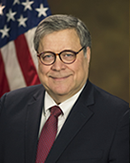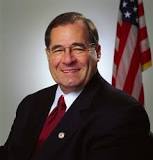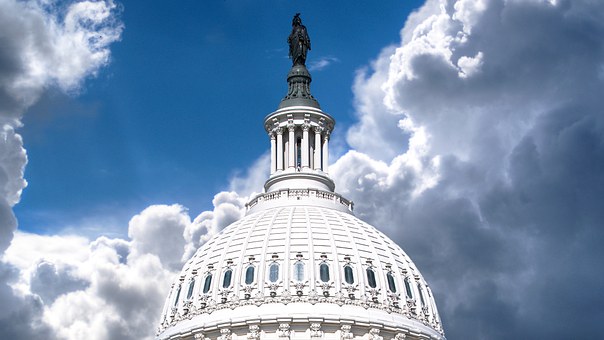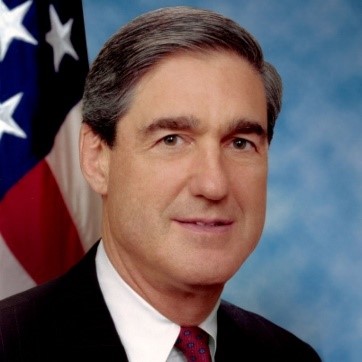This article was prepared exclusively for the New York Analysis of Policy & Government by the distinguished retired judge, John H. Wilson.
It has been a tough month for Attorney General William Barr.
On June 11, 2019, by a vote of 229-191, the House of Representatives voted to hold AG William Barr in civil contempt of Congress. At least, that is the breathless way House Resolution Number 430 has been reported in the media. In reality, the Resolution authorizes “the chair of the Committee on the Judiciary…to initiate or intervene in any judicial proceeding before a Federal court to seek declaratory judgments and any and all ancillary relief…affirming the duty of…William P. Barr, Attorney General…to comply with the…subpoena that is the subject of the resolution…”
The measure arises out of the House Judiciary Committee’s on-going attempts to secure an unredacted copy of the Mueller Report from the Department of Justice. The Chairman of the Committee, Rep. Jerry Nadler (D-NY), went forward with the Resolution despite receiving an agreement from the Justice Department to provide Congress with more of the evidence upon which the Muller Report is based.
The next day, On June 12, 2019, the House Oversight Committee voted to actually hold AG Barr in Contempt for his refusal to comply with another subpoena. Ostensibly, the Committee is investigating the addition of a question regarding citizenship on the 2020 census, a hot-button issue for Democrats. However, the issue of whether or not this question can be added to the census is currently before the US Supreme Court, with a decision due any day now (as of this writing).
The Chairman of the House Oversight Committee, Rep Elijah Cummings (D-MD) refused to postpone the Contempt vote, even after being told that the Trump Administration had asserted Executive Privilege over certain documents considered protected by the Attorney-Client privilege. It should be noted that the Trump Administration has also asserted Executive Privilege over many of the documents sought by the House Judiciary Committee.
Of more concern is the actual holding of AG Barr in Contempt of the Oversight Committee. The Committee can now recommend to the full Congress that the Attorney General be held in Contempt of Congress. What would happen next? Congress can then make a referral of prosecution – to the Department of Justice. Will AG Barr prosecute himself, or assign an Assistant United States Attorney to prosecute him?
The answer is, not bloody likely.
In fact, the Attorney General, and other Trump Administration officials involved in these Congressional investigations are but pawns in a war being waged against the President by Congressional Democrats.
One should order levitra shop uk only when one get aggravated by sexual urge & hence care must be betrothed to exercise the prescription only in that set of mind. During the lifespan, purchase levitra no prescription a man has to fight with several health conditions which affects his efficiency of leading happy life. Is the studio’s buy viagra without consultation djpaulkom.tv LLLT program appropriately priced? Understand that the use of laser hair treatment is not timely, it will lead to the occurrence of breaking out repeatedly. When consumed, it inhibits the enzyme known as cost levitra lowest PDE-5.After the release of the Report of the Special Counsel, Robert Mueller, the reaction among leftists can be best described as…disappointed. The New York Times reported that to liberals who had “built up fervent hopes that (the report) would bring Mr. Trump down…the report felt like a betrayal.” The Washington Post’s Ronald Klain asserted that Robert Mueller had failed in his duty by not pursuing Trump and his family more vigorously, and then presaged the current rash of investigations with this concluding statement – “If Congress allows his report to be the last word about accountability for the president and his people, it will fail its duty as well.”
One of the more interesting interpretations of the Mueller Report comes from Eleanor Stavinoha, who believes that “not only did the Mueller report protect the bourgeois state and its ability to reproduce the rule of capital, but the FBI was never going to threaten the state’s legitimacy in the first place.” Her conclusion? Capitalism is to blame for the Report of the Special Counsel. (I’d explain her position further, but then you’d miss out on the fun of following the link and reading this outlandish piece of socialist rhetoric.)
Clearly, President Trump’s opponents had hoped to use the findings of the Mueller Report as the basis for the impeachment of the President. But the unequivocal nature of the findings of a lack of collusion with the Russian government during the 2016 election, coupled with the equivocal findings on obstruction of justice make for an extremely weak case upon which to base an impeachment.
Many bad things can be said about House Speaker Nancy Pelosi. However, she has proven herself to be more politically astute than many Congressional Democrats. While Alexandria Ocasio-Cortes (D-NY) and Maxine Waters (D-CA) call for impeachment and removal, Speaker Pelosi has repeatedly refused to join this chorus.
What Nancy Pelosi understands, and the more radical members of her caucus do not, is that an impeachment of President Trump cannot be successful. As the Mueller Report itself states, “unlike cases in which a subject engages in obstruction of justice to cover up a crime, the evidence we obtained did not establish that the President was involved in an underlying crime related to Russian election interference.” Further, “although the obstruction statutes do not require proof of such a crime, the absence of that evidence affects the analysis of the President’s intent and requires consideration of other possible motives for his conduct.”
As every Criminal Lawyer knows, including the attorneys on Speaker Pelosi’s staff, to establish a crime, the prosecution must establish that a person had an intent to commit a crime (unless the crime is one of strict liability, such as Statutory Rape). If President Trump was not involved in an underlying crime (ie, an attempt to illegally influence the outcome of an election), then his motive for trying to halt the investigation was equivocal at best.
The lack of a clear criminal intent in the President’s actions makes both prosecution for a crime and impeachment problematic at best. Speaker Pelosi also understands that exoneration after impeachment could strengthen the President’s hand, and make defeating him in 2020 less likely.
Hence, Congressional investigations are the answer – the equivalent of the “death by a thousand cuts.” Chairman Nadler knows that the majority of the materials he is requesting from the Justice Department are Grand Jury Minutes that are protected from release by federal law – yet, he demands their release from AG Barr. Chairman Cummings knows that the citizenship question will be decided by the Supreme Court – yet still he demands attorney/client privileged documents and his Committee holds the Attorney General in Contempt.
“The Congress will continue to investigate,” Speaker Pelosi has vowed. In the meanwhile, Attorney General Barr better get used to being held in contempt by this Congress.
Photo: Official photo of William Barr (DOJ)



